Camera Basics
Gear
Any camera that can take a 10 second or more exposure.
All you need is a DSLR camera that can take a 10-30 second photograph, a sturdy tripod, timer, clear open sky and your set!
1. Ideally you should have a shutter release or an intervelometer, or you could simply set the timer on your camera.
2. You will need a tripod, the longer the exposure, the sturdier the tripod should be.
3. A good wide angle lens is also desirable for most shot, a typical kit lens (18- 55mm) will do nicely. A 14mm or 12mm f/2.8 lense with f/2.8 is better again.
4. You are going to want to use manual settings such as; 10 sec shutter speed or more, ISO 1600- 3200, f/4- f/2, f/1.8
(depending on you lense).
That's how I started, and it is what I return to when I just want simplicity.
To break it down more, they say you should look for a camera with a larger sensor. Full-frame sensors perform better in low-light conditions and capture more detail in the night sky compared to crop sensor cameras. This is true, however, I find that you do not need a full frame sensor at all, in fact I don't own one. There are some advantages to having a crop sensor such as better reach in telephoto. The crop sensor effectively extends the reach of your lenses, i.e. extra zoom!
The smaller sensor size also results in a deeper depth of field for the same aperture and focal length. This can be advantageous in certain scenarios where you want more elements in focus, such as landscape photography.
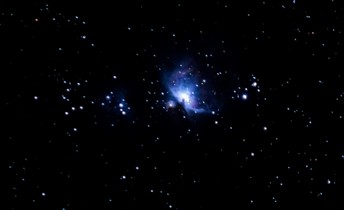
Most cameras made since about 2014 that have crop sensors are highly capable of photographing night sky landscapes and even items like the Orion Nebula (pictured left).
I use a Nikon D5500 and D500 both great for landscapes and the D500 great for sports, but they are both capable of ISO 3200 and 30 second shutter speeds. They also have BULB mode which when combined with an intravaolometer and a tracking mount, allows for much longer shutter speeds (captures more light).
Nikon D5500 -300mm lens, 10 second exposure, 3200 ISO
On the cheap
The gear you use can be expensive and you maybe tempted to reach out and look for the cheaper items.
Word of warning, in most cases IT WILL END UP COSTING YOU MORE in the long run!
I made a few mistakes in the beginning. It started with spare batteries, cheap knock offs purchased from ebay.
I got a pack of two with a charger at about 1/3 of the cost of just 1 x battery bargain right!
I also purchased a camera bag from 'Ali-Express', looked similar to one of the more expensive ones (same colour scheme) just without the brand and, at about a sixth of the cost! another bargain!
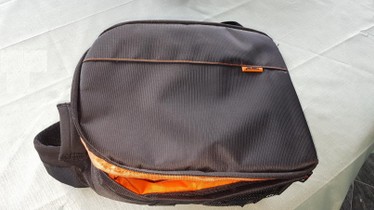
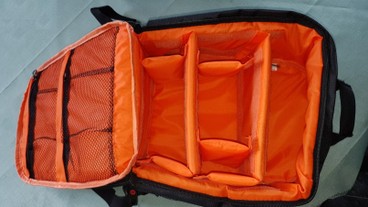
Above- cheap cameras bag
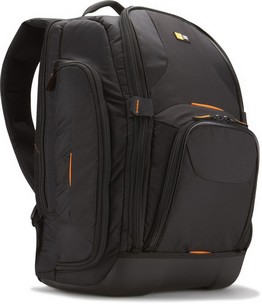
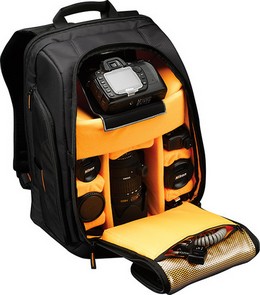
Expensive but much better quality camera bag
The batteries worked reasonable well for about 2 months, then they were cactus and would not hold a charge.
I then purchased the genuine Nikon battery for about $75. Later saved up and bought another and all are still going strong 2+ years later. The camera bag, although it looked the part, felt cheap and the zips would 'pop' open and all my gear would fall out. The padding was substandard as well.
I ended up purchasing a good brand name bag and 5 years later it is still rock solid. It cost $160 and is worth every penny.
Similar results with tripods. Too flimsy once the legs are extended, the camera connected to the top is no good for long exposures. The slightest bump, even a breeze will blur you photos.
If you are ever taking long exposures (with shutter release) and the photos come out blurry after you know the focus was good, look at your tripod!
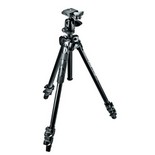
Quality is the key usually however, I purchased cheap knock off shutter release off E-bay 10 years ago and they are still going strong. The wireless remotes are a bit hit and miss but the cabled ones are fine.
I currently use a secondhand Manfrotto tripod I and a ball head mount- Perfect!
For my Skywatcher Adventurer I use the tripod that came with it, which works well, the telescopes onth eother hand, I use Equitorial Mounts which are riock solid, heavy and designed to track celestial objects as the Earth rotates. You can fit a camera to these as well, but perhaps a bit overkill if you do not have a good telescope.

